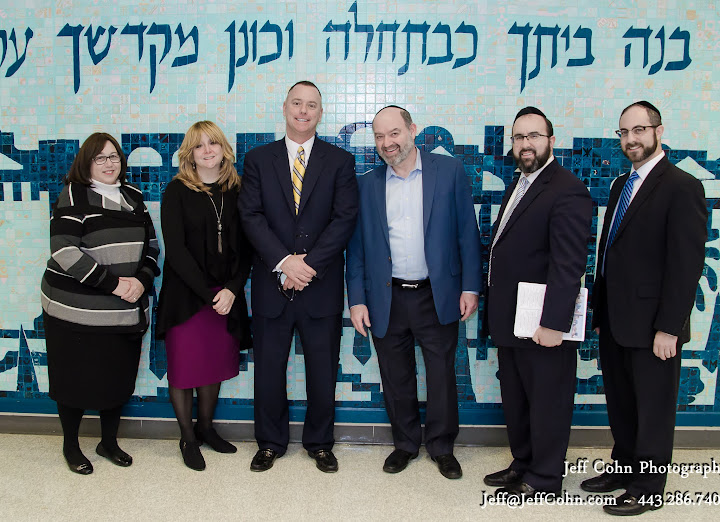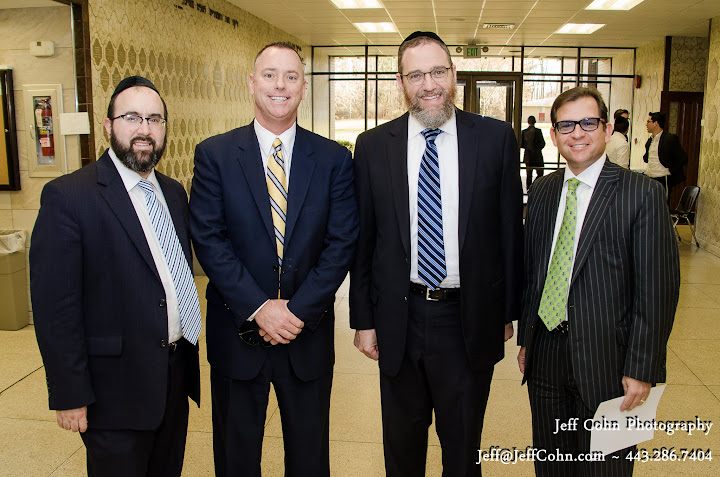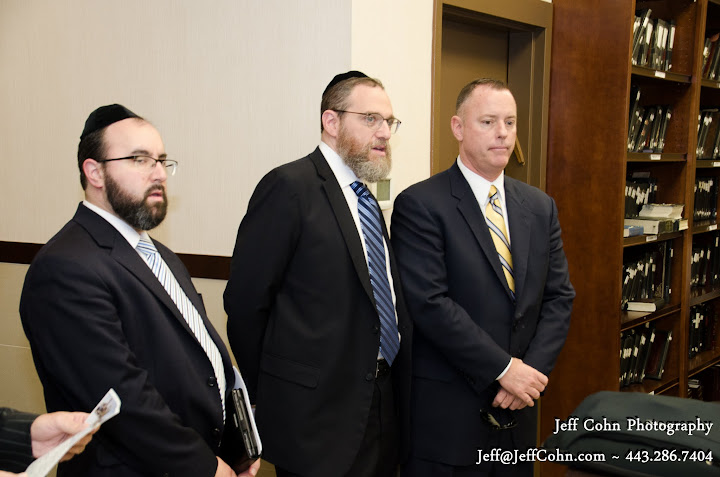Baltimore, MD - Dec. 24, 2015 - Upon embarking on his quest to become Maryland's 62nd governor back in January 2014, Larry Hogan set out to bring his unique business-minded skillset – one not burdened by politics – to the State House, in order to make a difference that would positively impact all Marylanders. His campaign placed heavy focus on listening to what the people of Maryland had to say, trying to best understand the needs of the communities across the state.
Mere days before the election the Hogan campaign requested the opportunity to meet with the rabbinic and lay leadership of the Baltimore Orthodox Jewish community. He engaged the group in a spirited dialogue, listened to all of their issues of interest and concern to better understand this unique community, and only then did he lay out his plans as governor.
In the days following the election, the governor-elect appointed his close business associate, Steve McAdams to his transition team. Several weeks later, he appointed Mr. McAdams – known for his exceptional people and management skills – to a top level position in the administration, as the executive director the Governor’s Office of Community Initiatives. His job: connecting the communities of Maryland with state agencies, departments, and private partners to create the partnerships to better serve the needs of the community.
I was first introduced to Mr. McAdams back in late July at a meeting in the Governor’s office, and after speaking briefly we decided that the best way for him to understand and appreciate our community would be to spend a day together and to provide him with a “community tour”. In preparing for the tour, I assembled a fact sheet containing general community information (number of households, shuls, schools, their enrollments), as well as a list and brief descriptions of many of the primary organizations and institutions which service our community. Also included on the fact sheet was a list of top priorities that state partnership could benefit: education funding, security provisions, healthcare related services, and business initiatives.
On Tuesday morning, December 15th, Steve McAdams and I began our morning together at Goldberg’s Bagels. After enjoying a fresh warm bagel, we chatted briefly about the structure of the Orthodox Jewish community and its noted influence on the Baltimore metropolitan area. The first visits with representatives of three organizations took place at Goldberg’s. Comprising the roundtable conversation was Mr. Eli Schlossberg of Ahavas Yisrael Charity Fund, Dr. Elimelech Goldstein of Hatzalah, and Mr. Nachy Schachter of the Northwest Citizens Patrol. Each representative provided information and materials about their organization, and described the vital benefits they provide to, not only our community, but many others who are beneficiaries of the services they provide. Of note, these organizations have helped Jewish communities in other cities and states launch similar programs. Throughout the conversation Mr. McAdams asked poignant and thoughtful questions, and we collectively discussed ideas for potential interaction with state entities that would help the organizations provide their services to the community. With each entity the themes of communal responsibility, volunteerism, and internal benefaction were prominently highlighted.
Continuing on the theme of food and the role of kosher in our community, the next stop was at Seven Mile Market. While still in the parking lot, we were met by the Chaverim service vehicle and the organization’s secretary/dispatcher, Mrs. Sarah Don. Mr. McAdams was very intrigued by the concept of a roadside service entity that also provides a wide array of other volunteer services unrelated to automobiles. Upon entering Seven Mile Market we were welcomed in by Mr. Simcha Retter, the store’s vice president, and strolled around the store while interacting with personnel in various departments. I pointed out the small kosher symbols found on all of the food products, something Mr. McAdams had not previously noticed despite having purchased many of the items dozens of times.
En route to our next stop, Bais Yaakov’s Smith Ave. campus, we took a scenic route around the neighborhoods, giving me the opportunity to point out different shuls, schools, and other landmarks along the way. Arriving at Bais Yaakov, we proceeded to the high school building where were welcomed by Rabbi Naftoli Hexter, principal of the middle school, and Rabbi Yechezkel Zweig, principal of the high school. Bais Yaakov vice president, Mr. Moshe Dov Shurin joined in the conversation which then shifted its focus to education funding matters and the needs of the Jewish day schools. Familiar items like scholarship tax credits, state funds for the purchase of textbooks, school construction grants, and security considerations were discussed and ideas were shared.
Joining us at Bais Yaakov were representatives of the community’s medical support service organizations, Mrs. Bonnie Pollack of Bikur Cholim of Baltimore, and Mrs. Stacey Goldenberg of the Jewish Caring Network. Each one described their operations and areas of service, and how the two work collaboratively on various issues. In addition to what the two organizations do for the members of the Baltimore community, Mr. McAdams was duly impressed when hearing about the numerous beneficiaries from abroad who come to Baltimore for the renowned medical care at the area hospitals and universities.
The last stop of the day was at the Ner Israel Rabbinical College for a brief tour of their 100 acre multi-structured campus led by its vice president, Rabbi Boruch Neuberger. Upon entering the large study hall in the beis medrash building, Mr. McAdams was overwhelmed by the gush of hundreds of loud voices diligently engrossed in their Talmudic studies. Joining us at the campus was Mr. Nathan Willner, representing Shomrim, who shared information about the safety and security services they provide to the community.
After spending close to four hours together, meeting with the representatives, and covering such a wide array of issues (although time didn’t allow for sufficient focus on the small business initiatives), Mr. McAdams was left with some truly special feelings about our community. He was amazed at how forward thinking and proactive our community is; how the community goes to such great lengths to take care of its own and provide their support; and how there are so many people who just want to help the next person.
As for me, it was indeed an honor to help facilitate such a Kiddush Hashem and showcase our wonderful community and its many volunteers. I now look forward to the next round of this process, to work with Steve McAdams and his staff to help forge the partnerships with the state agencies to provide greater benefits to the organizations and institutions who are dedicated to serving the needs of our community.












































